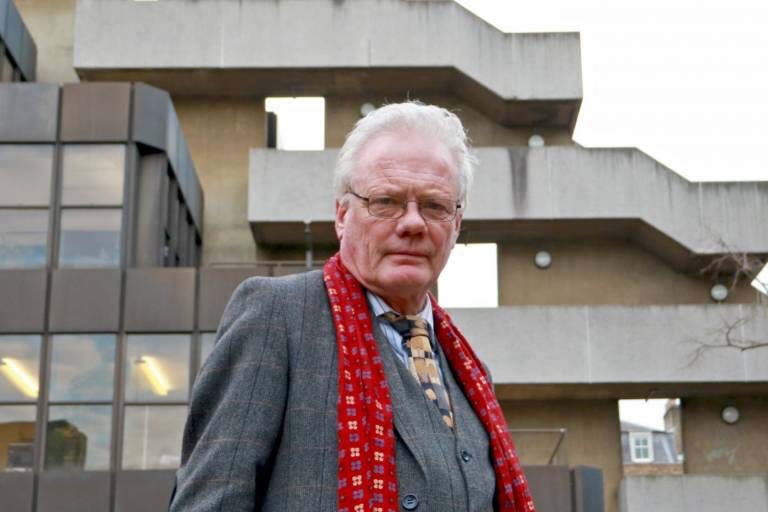G20 Thoughts on the post-pandemic world: Fears of an ephemeral recovery

The G20 is chaired this year by Saudi Arabia. That was always going to be interesting. But then came COVID 19. Very sensibly the secretariat tore up much of the intended agenda and placed the machinery of the G20 on a pandemic footing.
Wisely, it has focussed on how we recover from the economic and social trauma we are witnessing. Build back better has become the slogan of 2020, now widely adopted.
The message from G20 is quite clear[1]: COVID is probably survivable, climate change is not. If we get the short-term recovery wrong, there will be no long-term. There is unanimity: we must resist the temptation to burn our way into recovery. We must be clever with technology and how we interact with it. This will involve educators adopting a very different world view.
A New, Emerging Economy
A new, emerging economy, supported by artificial intelligence, was already underway. The Fourth Industrial Revolution has accelerated massively during this pandemic. Those advising the G20 agree that it is vital that it leads to a green recuperation.
The Policy Briefs, produced by teams of academics to advise the leaders of the G20, now being submitted agree that this has significant implications for education and skills. Knowledge can be downloaded: competencies cannot. The ‘skills ecology’ metaphor is now widespread. Action in one locality impacts on other areas, often in unintended ways. In the fragile world that will emerge, ethical considerations will be vital. Competencies will be the currency of the 4IR[2]. Hopefully ethics will be its engine.
To keep the economy green our students, both young and old, have to be prepared to work smarter, neater, and in a principled way. This means a wholesale change in attitudes, in the nature of society, and so in how we are preparing our students for both employment and civic life.
The Changing Nature of Employment
This is clear in the Policy Briefs that I have studied. Not only the nature of work, but also the nature of employment will change.
The upheaval in the industrial revolution leads to the dilemma of creating new job categories vs. the fear of losing conventional jobs[3].
A conventional approach to the economy will have no future. As a result,
The intense global competition and rapid technological advances demand better-prepared graduates and reskilling the currently employed. Education irrelevancy is a challenge where graduates lack the knowledge and skills to generate choices for employment, and in fact, there is no confidence in the education programs outputs. It is also essential to acknowledge that we are in the era of transition from job in its traditional form to more diverse forms of works[4]. We must anticipate that the industrial transformation will catalyze the informal gig economy and newer job categories.
This Policy Brief recommends that:
An industry-friendly policy framework needs to accommodate a modus operandi for contextualized automation for each industry, especially in the areas of STEM education, alternative employment, privacy rights, and adaptive policy frameworks benefiting the overall industry.
As the nature of work changes, so will the institutions that provide it:
The growth of the platform economy is likely to create more precarious work conditions than formal employment, in terms of job security and social protection. To ensure ‘Decent Work for All’ in line with Sustainable Development Goal -8, there is a need to strengthen and revitalize the institutions of work.[5]
These writers are thinking through major changes in attitudes and interactions. A fascinating Brief by Paul Twomey and Kirsten Martin[6] looks at how relationships will change as the concept of the ‘professional’ begins to disappear.
In the offline world, we have developed safeguards to ensure that those with intimate knowledge of others do not exploit vulnerabilities and weaknesses of individuals through manipulation. Yet, online data aggregators and their related AI firms, with whom we have no relationship (for instance a contract), have more information about our preferences, concerns, and vulnerabilities than our priests, doctors, lawyers, or therapists.
They are concerned about the citizen’s autonomy in an AI-driven world:
We propose that governments should extend their existing off-line protections and standards against manipulation to also cover these data controllers which presently have the knowledge and proximity of a very intimate relationship without the governance and trust inherent to such relationships in the off-line market. We also propose several steps to protect citizens’ autonomy and decrease user deception. Extensions. The ability of ‘data traffickers’ and their AI partners to leverage knowledge they have on almost every person on the Internet makes the scale of the public policy and political challenge worthy of Ministers and Heads of Government[7]
A New Morality
New competencies and frameworks will be developed to protect a changing social contract. There will be a reconsideration of what it is to be human.
Policy Briefs are urging a new morality around emerging poor behaviours: misuse of data, fake news and exploitation of workers.
The Fourth Industrial Revolution (4IR) requires individuals to be adaptable, critical thinkers who constantly re-skill themselves. Education must abandon its obsession with content, examinations and evaluations and focus on critical thinking, adaptation and acquiring learning skills. Teachers and students need to re-think their roles[8].
In a rapidly changing world, the workplace is shaped by the integration of Artificial Intelligence (AI) into all business functions through automation and digitalization, impacting all workers, jobs, professions, and societies. As the capacity of AI expands to impact the realm of learning, workplace training demands the maximization of these new capabilities and the transition to a new frontier in which unique developmental needs of every worker is met through individualized training. Maximizing technology affordances is not just a case of the right organizational strategy, it requires collective economic and societal effort for successful transformation to a new dimension.[9]
Virtual Conferences
For many of us the most physical manifestation of the new technology has been the virtual conference. My work has been uninterrupted despite being locked out of my office for months. I have continued to work with Riyadh, with colleagues from Berlin, constrained only by time zones – bringing colleagues from Tokyo and New York together is a challenge. This is low-energy stuff: I have now not travelled many thousands of miles.
During the pandemic colleges have shown that 3D printers can bring production much closer[10] As with other industrial revolutions there will be a change in the sense of place, of locality, of how we come together, how we produce and how we assemble. A new philosophy of civic life is required.
The final Riyadh summit of world leaders starts on 21 November. By that time we may have a clearer picture of how the pandemic has impacted on the world. It is to be hoped that the resulting Communique captures the clarity of thinking in the emerging briefing documents.
The members of the G20 represent two thirds of the world’s population and 90 per cent of global production. It can have a massive impact. Hopefully COVID will not distract from an assessment of how the new, AI supported arrangements can led to a greener future.
Paul Grainger is co-director of the Centre for Post-14 Education and Work, UCL, and co-chair of the T20 Task Force on The Future of Work and Education for the Digital Age.
References:
[1] T 20 Conference: Policy Recommendations for a Post-Covid19 World. 12 June 2020. Superbly led and co-ordinated by Heidi Alaskary.
[2] G 20 Policy Brief: Competencies: the currency of the fourth industrial revolution economy. Omaimah Bamasag, King Abdulaziz Universiy, Ghadah Aldabbagh, King Abdulaziz University.
[3] G 20 Policy Brief: The Impacts of Artificial Intelligence and Technological Disruption on Education, Employment, and Workplaces, Syed Munir Khasru, IPAG Asia Pacific. Riasat Noor, IPAG Asia Pacific, Cian Mulligan, KAPSARC. Baltasar Manzano, Universidade de Vigo. Ramiro Albrieu, CIPPEC.Martín Rapetti, CIPPEC. Mar. 20, 2020
[4] ibid
[5] G 20 Policy Brief: Decent work in the platform economy. Radhicka Kapoor, Senior Fellow, Indian Council for Research on International Economic Relations;
[6] G 20 Policy Brief. A Step to Implementing the G20 Principles on Artificial Intelligence: Ensuring Data Aggregators and AI Firms Operate in The Interests of Data Subjects, Dr Paul Twomey, Distinguished Fellow, Centre for International Governance Innovation, Professor Kirsten Martin, Chair, Strategic Management and Public Policy, George Washington University School of Business.
[8] G 20 Policy Brief. Gamification: education for the fourth industrial revolution Mario Torres, European Institute for International Studies. Shaun Riordan, European Institute for International Studies
[9] G 20 Policy Brief: Reskilling employees for future work: how G20 countries can utulize artifical intelligence-based learning technologies to scale up workplace training. Mesut Akdere, Ph.D., Purdue University,
[10] Colleges as Civic Anchors in response to COVID 19. FE News, 16 April 2020











Responses